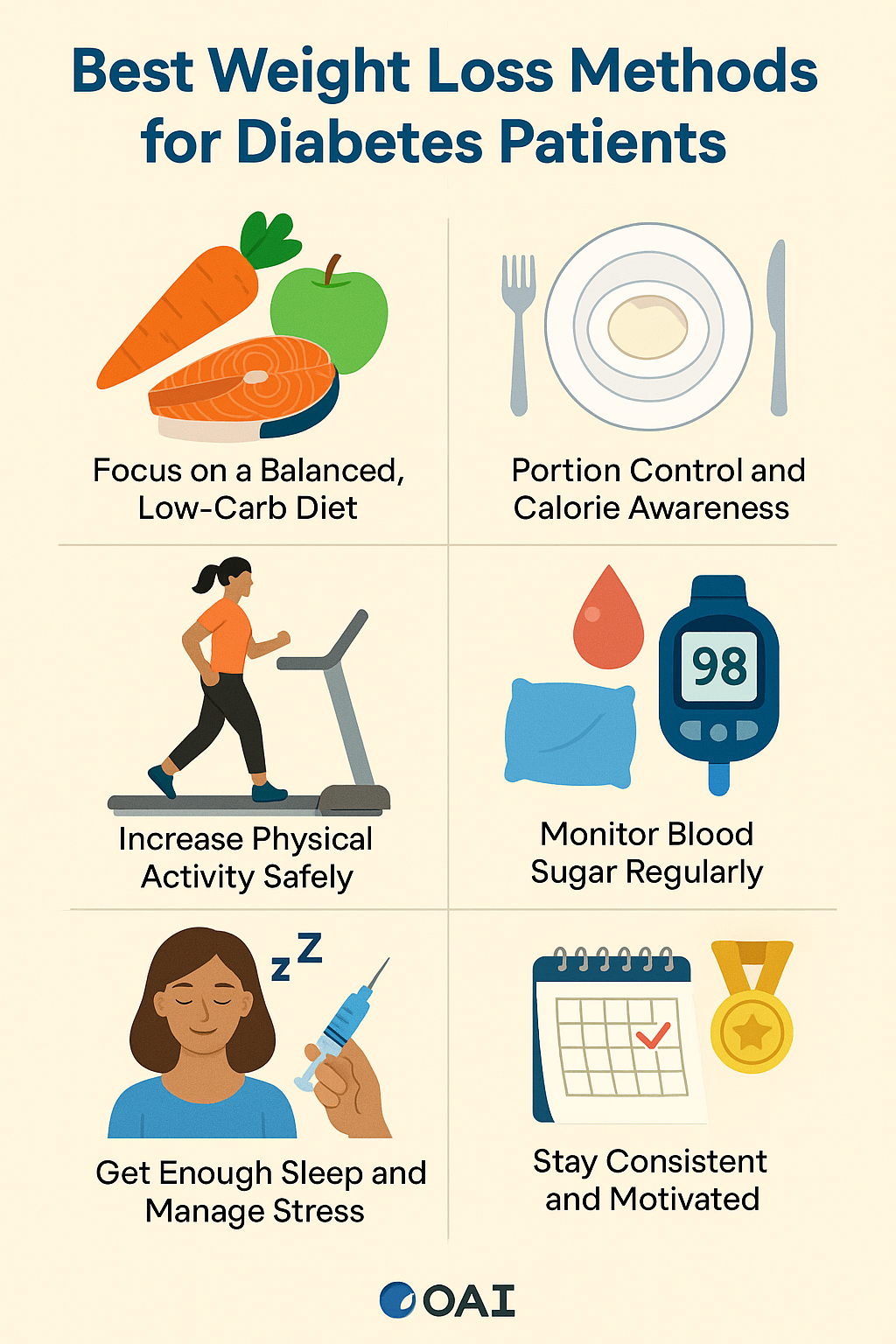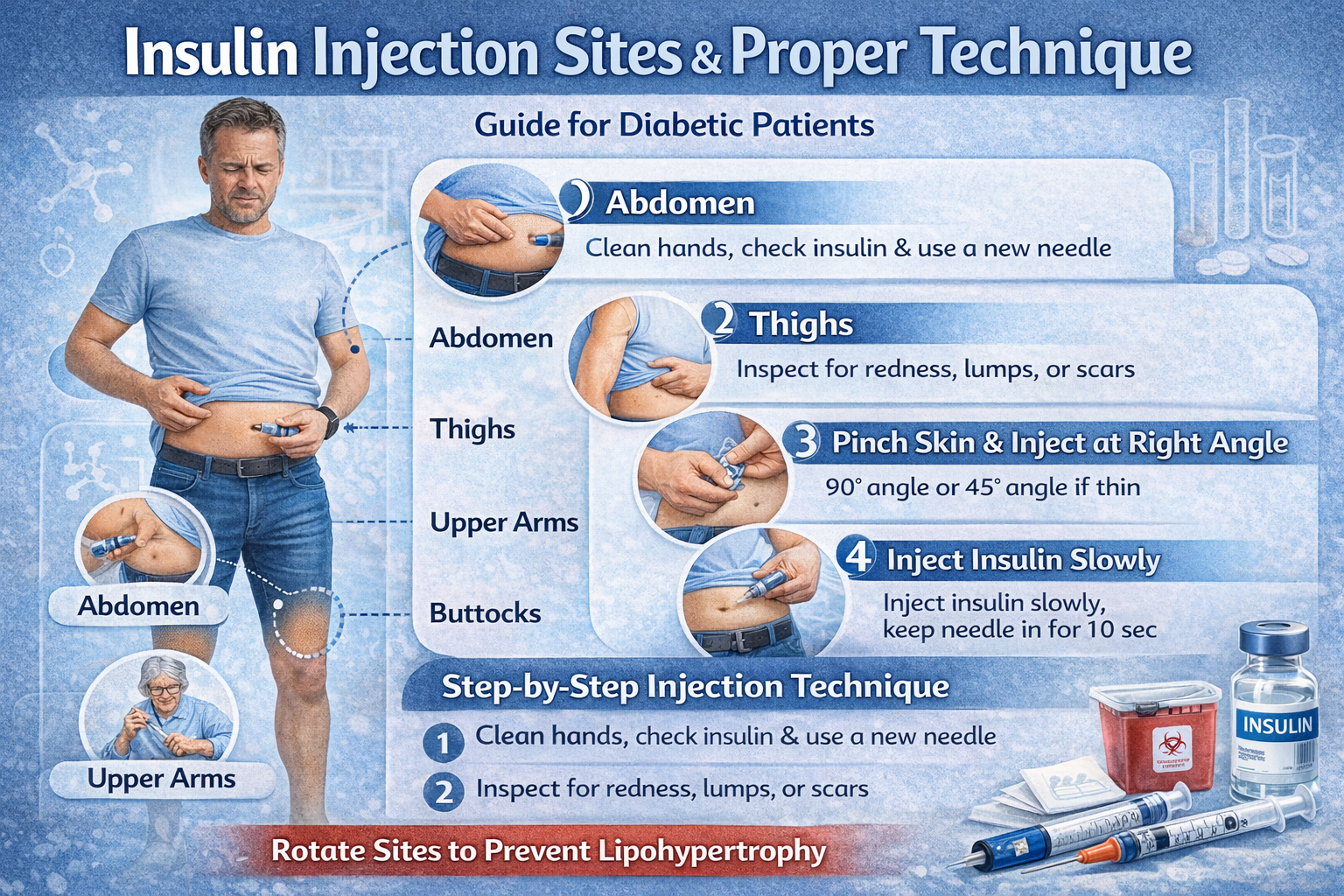Weight loss plays a crucial role in managing type 2 diabetes and even delaying the onset of the disease in pre-diabetics. Losing just 5–10% of body weight can significantly improve blood sugar control, lower blood pressure, and reduce the risk of heart disease. However, for individuals with diabetes, losing weight requires a smart, safe, and sustainable approach tailored to their health needs.
In this blog, we’ll explore the best evidence-based weight loss methods specifically for diabetic patients.
1. Focus on a Balanced, Low-Carb Diet
Carbohydrates directly affect blood sugar levels. Diabetics should follow a balanced diet that’s rich in fiber, protein, and healthy fats, while limiting refined carbs.
✅ Recommended Foods:
- Non-starchy vegetables (spinach, broccoli, cauliflower)
- Whole grains (in moderation)
- Lean proteins (chicken, fish, legumes)
- Healthy fats (avocados, olive oil, nuts)
- Low-GI fruits (berries, apples)
❌ Avoid:
- Sugary drinks
- White bread, pasta, and rice
- Baked goods and desserts
- Processed snacks
Tip: A registered dietitian can help you create a personalized meal plan.
2. Portion Control and Calorie Awareness
Monitoring portion sizes helps reduce calorie intake, which is key for weight loss. Diabetics should avoid overeating even healthy foods.
Simple Techniques:
- Use a smaller plate
- Read food labels
- Avoid second helpings
- Eat slowly and mindfully
3. Increase Physical Activity Safely
Regular exercise boosts insulin sensitivity and helps burn fat. Aim for at least 150 minutes of moderate activity per week.
Best Exercises for Diabetics:
- Walking: Low-impact and effective
- Swimming or cycling: Joint-friendly
- Strength training: Builds muscle and improves metabolism
- Yoga: Helps with stress and flexibility
Always consult your doctor before starting a new workout, especially if you’re on insulin or other medications.
4. Monitor Blood Sugar Regularly
Blood glucose monitoring helps understand how food and activity affect your body. Weight loss strategies should not cause dangerous lows (hypoglycemia), especially if you’re using insulin or sulfonylureas.
Tracking Helps:
- Avoid hypoglycemia during workouts
- Adjust insulin doses if needed
- Recognize patterns and triggers
5. Get Enough Sleep and Manage Stress
Sleep and stress levels can impact weight loss and diabetes management.
Tips for Better Lifestyle Habits:
- Aim for 7–8 hours of quality sleep
- Practice meditation or breathing exercises
- Limit screen time before bed
- Seek help for depression or anxiety
6. Consider Medical Weight Loss Options
If lifestyle changes aren’t enough, medical options may be considered under professional guidance.
Possible Interventions:
- GLP-1 medications (e.g., Semaglutide, Ozempic): Help with both weight loss and blood sugar control
- Metformin: Helps with appetite suppression
- Bariatric surgery: For obese diabetics, this can lead to significant improvements
These options must be discussed with your healthcare provider.
7. Stay Consistent and Motivated
Weight loss in diabetes is a long-term journey. Set realistic goals and celebrate small wins.
Motivation Tips:
- Join diabetes support groups
- Use apps for meal planning or fitness tracking
- Keep a journal of your progress
- Work with a diabetes educator
Conclusion
Weight loss is a powerful tool for managing diabetes and preventing complications. By focusing on healthy eating, staying active, monitoring glucose, and maintaining a supportive lifestyle, diabetic patients can achieve sustainable weight loss and better overall health.




